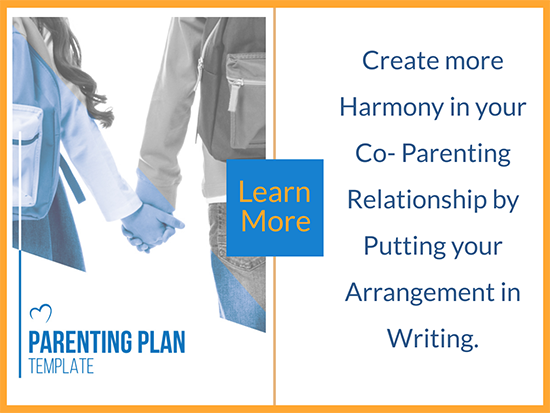In Australia, the family law legislation encourages parents to agree about matters concerning their children and to take responsibility for their parenting arrangements by working together to resolve conflict. The best way to do this is to discuss the situation openly and put your agreement in writing in a Shared Parenting Plan Template.

Under the Family Law Act, separated and divorced parents are encouraged to make their own arrangements for the custody and care of their children through a parenting plan.
The Family Law Act states that parents ideally should make their own private arrangements with regards to parenting and custody, by way of a Parenting Plan. The legal system, the Act states, should be used as a last resort to finalising parenting issues, rather than as a first resort.
A Shared Parenting Plan Template is an agreement between parents that is in writing. It may deal with:-
- where the child is to live;
- the time a child is to spend with parents and other people;
- the allocation of parental responsibility;
- where 2 or more people are to share parental responsibility, the form of consultations those persons are to have about decisions to be made regarding the child;
- the communication a child is to have with other persons;
- the process to be used for resolving disputes about the terms or operation of the parenting plan;
- how the plan can be changed for changing needs or circumstances of the child or the parties;
- any aspect of the care, welfare or development of the child;
- any other aspect of parental responsibility.
The best interests of the child
 Parents are encouraged to regard the best interests of their children as the paramount consideration when making a Parenting Plan.
Parents are encouraged to regard the best interests of their children as the paramount consideration when making a Parenting Plan.
When considering what is in your child’s “best interests”, the Act places emphasis on:-
- ensuring that children have the benefit of both their parents being involved in their lives, as long as this is in the best interests of the child;
- protecting children from physical or psychological harm including the exposure or subjection to abuse, neglect or family violence;
- ensuring that children can achieve their full potential by receiving adequate and proper parenting; and
- ensuring parents fulfil their duties and meet their responsibilities concerning the care, welfare and development of their children.
These considerations are based on the following principles, except when it would be contrary to a child’s best interests:-
-
- that children have the right to know and be cared for by both their parents, regardless of whether they are married, separated or have never married or lived together;
- that children have a right to spend time on a regular basis with, and communicate on a regular basis with, both parents and other significant people, such as grandparents and relatives;
- that parents jointly share duties and responsibilities regarding the care, welfare and development of their children;
- that parents should agree about the future parenting of their children; and
- that children have a right to enjoy their culture (including the right to enjoy that culture with others who share that culture).
Shared Parenting Plan Template Kits are available for immediate download here.


